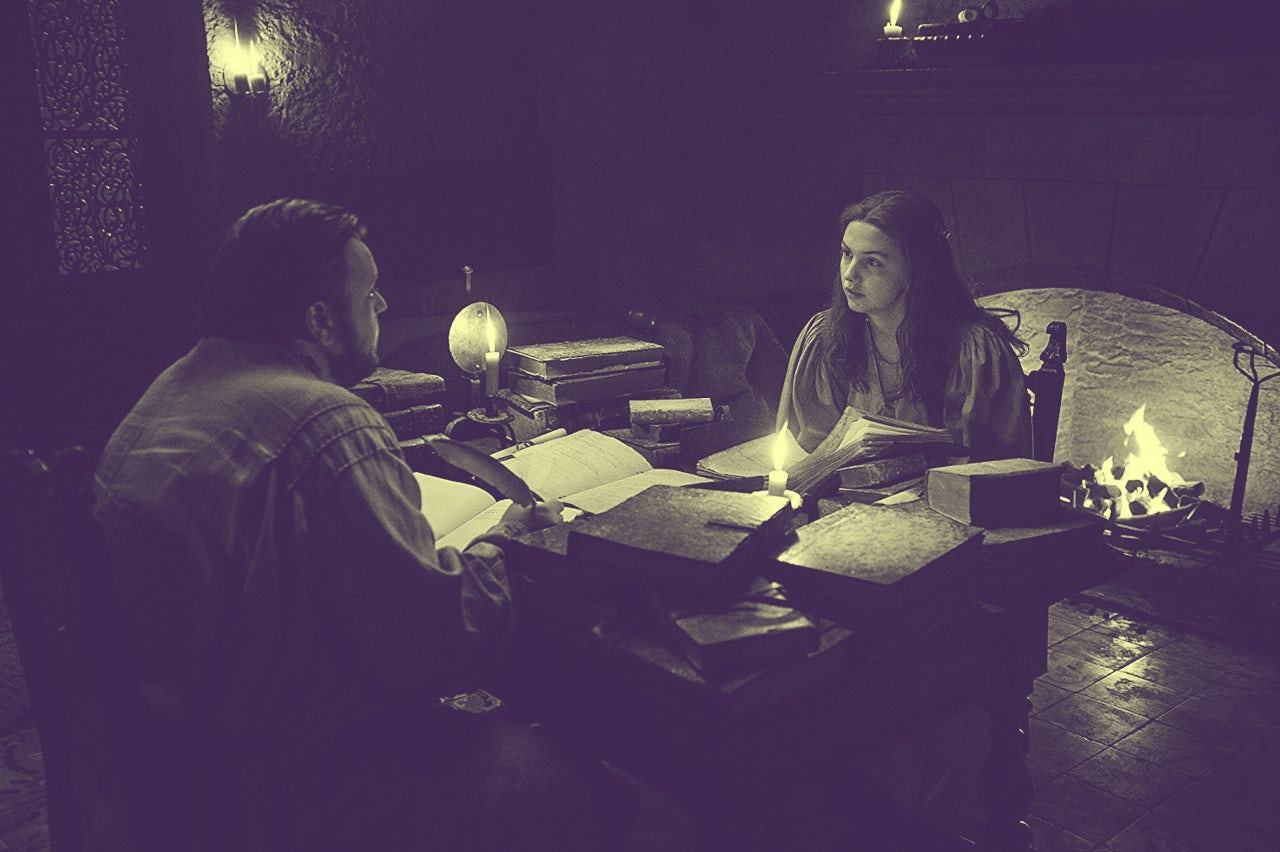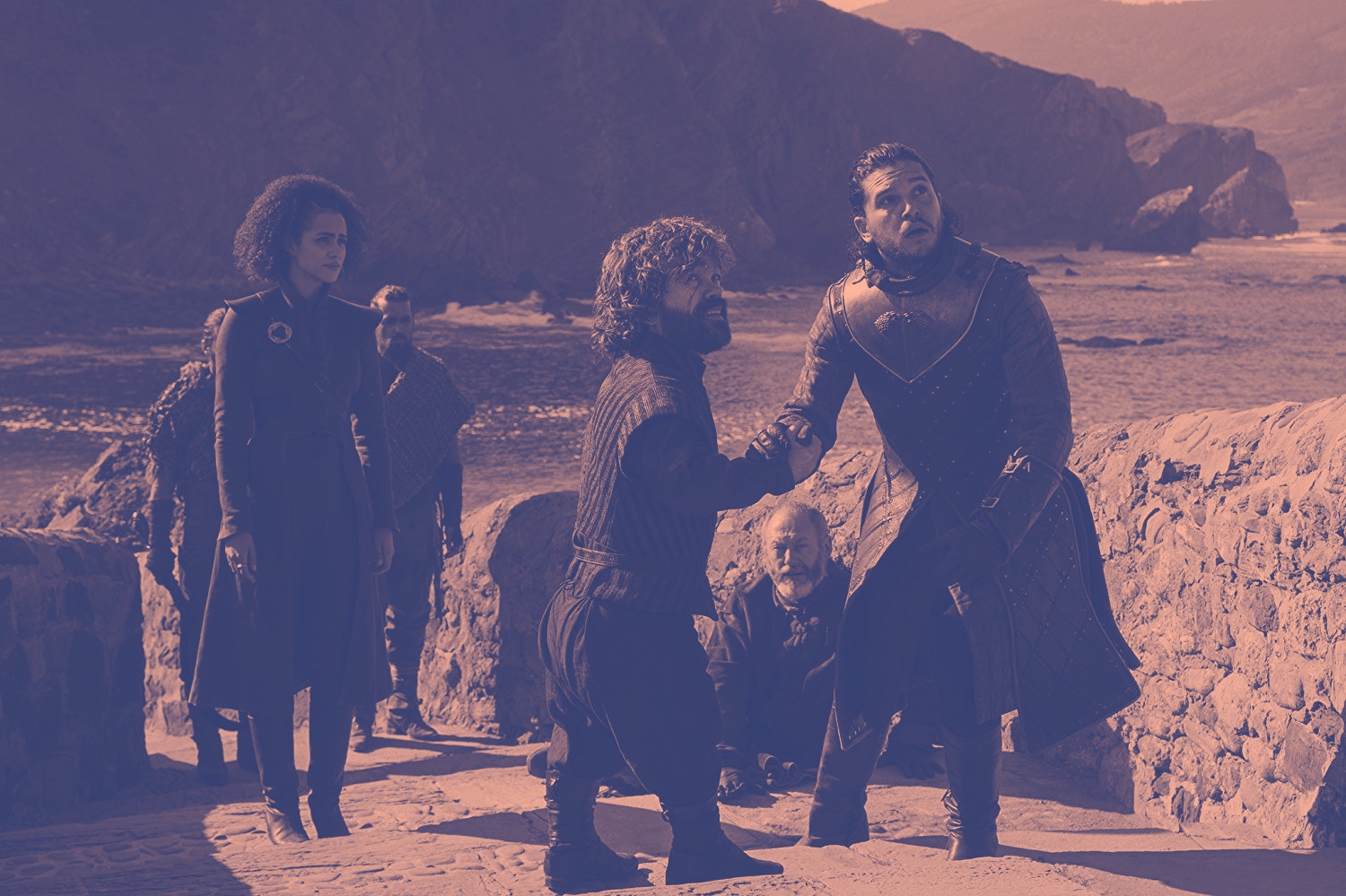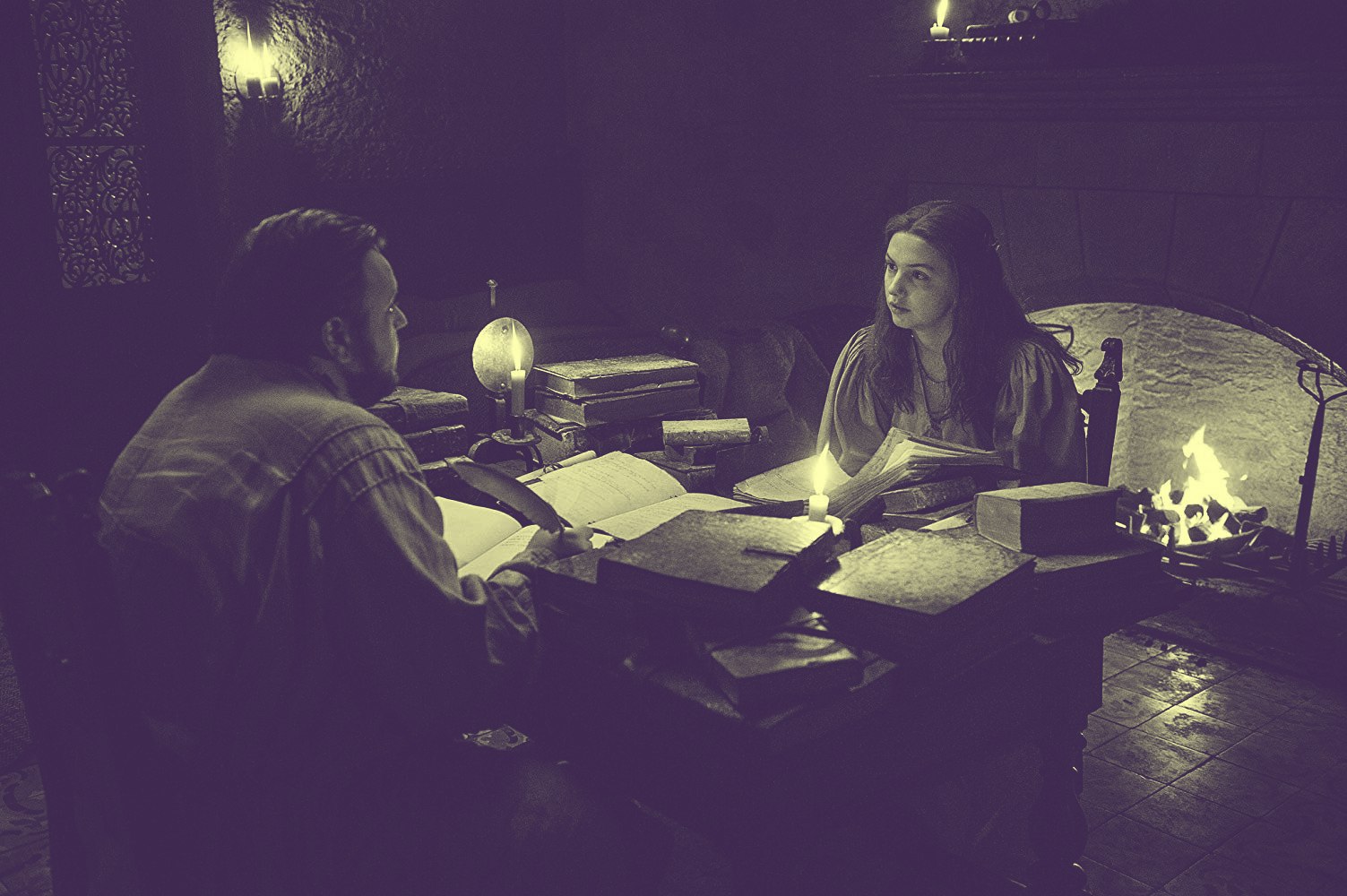Game of Thrones has always been known for a few things: extreme violence, a bewildering amount of sex, unapologetically killing off its main characters, and having a cast so big they could start their very own kingdom in the show. Remembering the names for dozens of characters within the show’s 67 episodes is a task taller than The Mountain, and memorizing the way their personal and house histories intertwine throughout centuries of Westerosi lore is nearly impossible. Beyond the deeply detailed plot, George R.R. Martin's fantasy creates its own phrases, ethnic histories, and even its own languages as times, making it a struggle to retain every piece of information thrown at you.
No one wants to make their entertainment experience feel like sitting through a 60-minute history class, but Game of Thrones is a show unlike any we’ve seen before. It demands studious attention to not just get the most out of the experience, but just to simply know what’s going on. At the beginning of the first season, I was admittedly more lost than Samwell Tarly on a battlefield. I’d have conversations about the show with friends, repeatedly asking who’s who: “Wait, who’s Lord Mormont again? And he’s different than Ser Mormont…?”
Then, I realized the very easy solution before me: closed captioning. After turning the subtitles on, I started to follow along much better, allowing me to tell all my Mormonts apart. If I wanted to pay more attention to the visual aspects, I rewatched without the subtitles on, something I’ve done leading up to this final season. Now that I better understand the web of characters and the depths of their connections, I haven’t missed a second of Cersei’s sneers.
While the way we watch television is changing, most Americans are still spending the majority of their free time watching it. Still, pausing to reread subtitles can admittedly make leisure time feel like you’re back at work. Closed captioning can draw your eyes away from the cinematography, or might make you miss minor details in the set design that help truly place you in a period piece like GOT. You might even start to pay less attention to body language actors are using to convey an emotion the dialogue cannot.
But it might be difficult to track plot development if you can’t even remember a character’s name. By my count, there’s been something like 43 main cast members in the seven seasons of GOT so far — at least that’s the number of actors who have been officially credited in the show’s opening title — from clear leads like Jon Stark and Cersei Lannister to characters with temporary importance like Ygritte and Roose Bolton. That means there’s a new main character introduced more than once every two episodes. That doesn’t even touch the hundreds of minor characters floating around the Seven Kingdoms who can, at any moment, lunge out to make an enormous impact on the show and step into a main role — like in the case of Euron Greyjoy, who was casually mentioned throughout the series and then shockingly appeared on screen for the first time in Season Six, killed his brother Balon to claim rule over the Ironborn and then went on to stand at the side of Cersei Lannister as the fight over the Iron Throne came to a head.
“Those who read captions while watching and listening retain the story line (better), as well as characters,” said University of Wisconsin-Superior researcher Dr. Rebecca Graetz, who has studied the impact closed captioning has on learning and memory retention and has two children with processing disorders who benefit from subtitles. The federal government has also stepped up in recent years, passing laws requiring media companies like Netflix to have subtitles available to make modern media more accessible. It’s also becoming the preferred way of watching TV for the majority of people. An Oregon State University study showed that most college students often choose to use closed captioning, saying it helps with focus and comprehension.
In GOT’s case, research also shows that subtitles help American viewers decipher and understand foreign accents. With a bibliographic cast that largely speaks with European accents, closed captioning becomes less of an option and more a necessity for many U.S. fans who don’t commonly hear European accents on screen. Dr. Graetz pointed to how subtitles have helped one of her student assistants, a non-native English speaker from Brazil, better understand the English language by utilizing closed captioning. “This is even more important to those who really enjoy a TV show such as Game of Thrones but do not have the ability to process the information quickly,” she said. “Captioning in different languages helps them understand what’s happening in a storyline by having a common captioned language.”
The sheer amount of information GOT brings to the table and how it’s all served to its audience makes attentive viewing all the more necessary. Without paying close attention, it’s easy to confuse minor characters with vaguely similar names like Lysa and Lyanna or distinguish between the symphony of seldomly mentioned Sers, like Ser Arthur Dayne or Ser Rodrik. You might even get lost and forget that minor character Ser Brynden is actually the same person known as “The Blackfish” and that he’s from House Tully and he’s Catelyn Stark’s uncle, making him the great uncle of Sansa Stark, the same person he refused to aid in battle at Winterfell and instead died fighting for his home at Riverrun. Now imagine all that information was peppered in over the course of six seasons. You might want all the help you can get, whether it be closed captioning, reading recaps, or reviewing old episodes.
Most dramas allow you to act like a fly on the wall and still get the best out of your viewing experience, but Game of Thrones demands active and thoughtful participation. That’s partly what’s made the show so addictive, making it “the world’s most popular show” and a perennial ratings smash. For those who watch, it’s a scholarly investment that continuously pays off in drama, suspense and masterful storytelling season after season. But it also means you might be doing a lot of reading.





